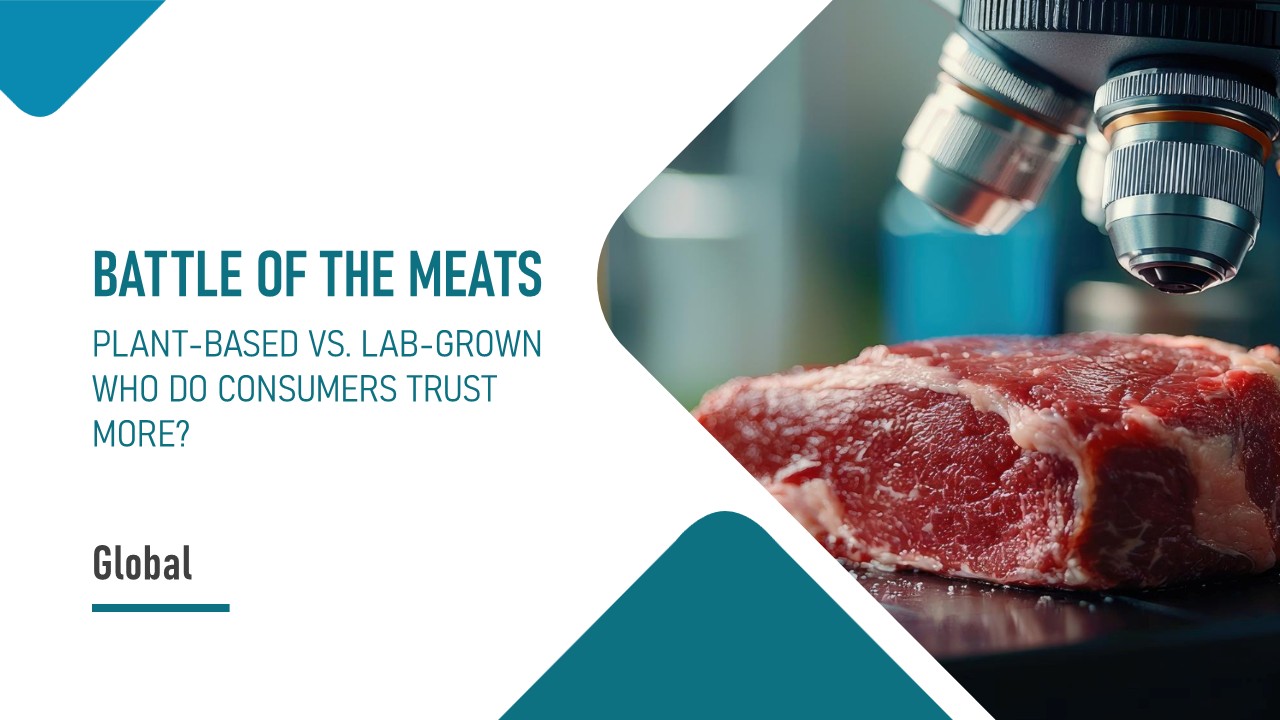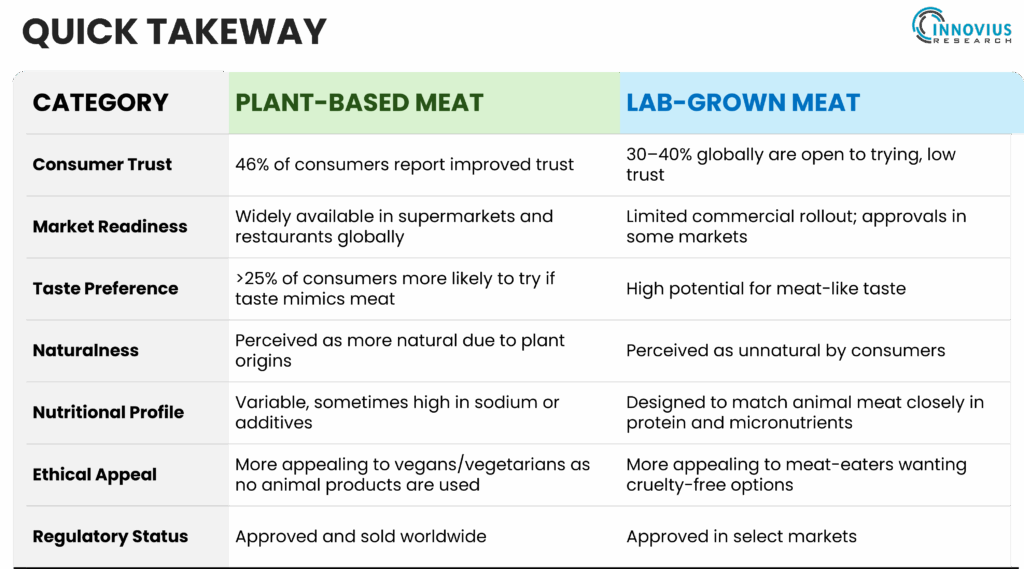
Plant-Based vs. Lab-Grown – Who Do Consumers Trust More?
Driven by growing concerns over climate change, animal welfare, and food security, alternative proteins, including plant-based and lab-grown meats, are gaining momentum. While both aim to disrupt the traditional meat industry with more sustainable and ethical options, their long-term success hinges largely on consumer trust.
So, between plant-based and lab-grown meat, which one is truly winning over hearts and appetites?
Understanding the two alternatives: Plant-Based Meat vs. Lab-Grown Meat
🌱 Plant-Based Meat is made entirely from plant proteins such as soy, peas, wheat, or mushrooms and is crafted using methods such a high-moisture extrusion to recreate the taste, texture, and appearance of animal meat.
🧫 Lab-Grown Meat, also known as cultured or cell-based meat, is produced by harvesting animal cells, typically muscle or stem cells and cultivating them in bioreactors. The result is genuine animal meat that is molecularly identical to conventional meat, but it is grown without raising or slaughtering animals.

Trust in Plant-Based Meat: Growing but Still Uneven
When it comes to consumer trust, plant-based meat currently holds a noticeable edge over its alternatives.
As awareness grows, so does acceptance. According to ProVeg International, nearly half of consumers, 46%, report increased trust in plant-based options, while 39% remain uncertain.
Recent data from the Good Food Institute (GFI) in 2024 supports this upward trend. Nearly 3/4th of US consumers between the ages of 18 and 59 expressed openness to trying plant-based meat or dairy products in the future.
Beyond taste, motivations such as health, sustainability, and animal welfare are also key drivers of consumer interest.
Trust in Lab-Grown Meat: High Potential, Lingering Doubts
Lab-grown meat represents one of the most innovative developments in food science; however, gaining widespread consumer trust remains a significant challenge. While curiosity is undoubtedly growing, adoption is far from guaranteed.
A 2024 study by the University of Edinburgh revealed that individuals who place a high value on naturalness are far more likely to reject cultured meat altogether.
Surveys show a significant gap between awareness and acceptance. Globally, only 30-40% of consumers say they are willing to try lab-grown meat, with an even smaller group open to making it a regular part of their diet. In the UK, a recent national survey found that just 30% of respondents consider lab-grown meat safe to eat, a clear indicator of the trust gap that remains.
While the potential benefits of cultivated meat are substantially reduced environmental impact, no animal slaughter, and scalable food production, earning consumer confidence will be essential for its success. Until then, lab-grown meat remains a scientific marvel waiting for its moment in the mainstream.

Who Leads the Future of Alternative Protein?
Plant-based meat currently leads the trust race. It’s more familiar, widely available, and aligned with consumer perceptions of safety and sustainability. Its challenge now lies in refining its taste and appealing beyond the vegan niche to win over traditional meat-eaters. Lab-grown meat, though groundbreaking, faces deeper trust barriers. Emotional hesitation, moral concerns, and unfamiliarity remain major hurdles. But with continued education, transparent communication, and regulatory backing, its trust potential could rise, especially among younger, environmentally conscious consumers.
Hybrid products may offer a bridge, combining the strengths of both categories to ease consumers into new food frontiers.
Ultimately, both plant-based and lab-grown meats play distinct roles in shaping the future of the food industry. Success will hinge not just on science, but on how well they connect with consumers through trust, taste, and transparency. For now, plant-based holds the lead—but the trust game is far from over!
Data Sources: Unilever Food Solutions, FoodNavigator, The Good Food Institute, DJS Research, ScienceDaily, and Feed Strategy
Other Market Insights

